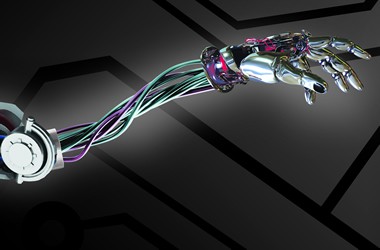+++++++++++++++++++++++
Call for Position Statements
ICSR 2013: Full-day workshop on Taking Care of Each Other: Synchronisation and Reciprocity for Social Companion Robots
Deadline: 19.08.2013
http://www.icsr2013.org.uk/specialsession.php#Workshop3
27 October 2013, Bristol, UK
++++++++++++++++++++++++++++++++++++++++++++++
Recent studies of compassion argue that in human-human interaction actual compassion exists, which is not inherently motivated by self-interest. This research suggests that compassion is based on reciprocity and synchronisation and is rooted in our brain and biology as well as in our socialisation and culture. In a nutshell compassion can be considered as one of the building blocks for sociality. When we are developing robots as companions we have to wonder in how far we can integrate synchronisation and reciprocity in our systems in order to achieve a perceived compassionateness, which leads to mutual care between the user and the robot, as this fosters a sustainable long-term interaction with the system accompanying the user.
Companion robots are considered for various application areas, such as school education, elderly care, therapy etc. and in all these contexts we are aware that a give-and-take relationship can be crucial for the success of the individual. Therefore, companion robots must communicate a feeling of social coupling, relate to the human counterpart, share perceptions and intentions and thereby achieve synchronized and reciprocal behaviour to be considered an actual companion.
Addressing these aspects demands joint effort from the HRI community of various disciplinary backgrounds, such as amongst others cognitive sciences, sociology, and social/ behaviour-based robotics. We believe that this workshop can offer the space to discuss companionship in/for robotics as an interaction pattern of give-and-take and create the much-needed interdisciplinary network to explore this unifying social HRI theme.
***Submissions***
Potential participants are invited to submit a position statement. The position statement (min 800 words, but no longer than 4 A4 pages in Springer LNCS format) can be on the following potential (but not restricted) topics:
Companion robots
Household companion robots
Elderly care companion robots
Companion robots for therapy
Companion robots for education
Synchronicity
Joint attention
Joint action
Action observation and imitation
Reciprocity
Perceived intentionality
Human-robot relationship
Social acceptance of robots
Submissions are accepted in PDF format only, using the ICSR formatting guidelines (http://www.icsr2013.org.uk/paper.php) and including author names. All submissions will be peer-reviewed. Authors should send their papers to astrid.weiss@tuwien.ac.at
***Important Dates***
19 August 2013, Position statement submission
02 September 2013, Notification of acceptance
27 October 2013, Workshop at ICSR 2013
***Organizing Committee***
• Astrid Weiss (Vienna University of Technology, Austria)
• Tamara Lorenz (Ludwig-Maximilians University Munich, Germany)
• Ben Robins (University of Hertfordshire, United Kingdom)
• Vanessa Evers (University of Twente, The Netherlands)
• Markus Vincze (Vienna University of Technology, Austria)





